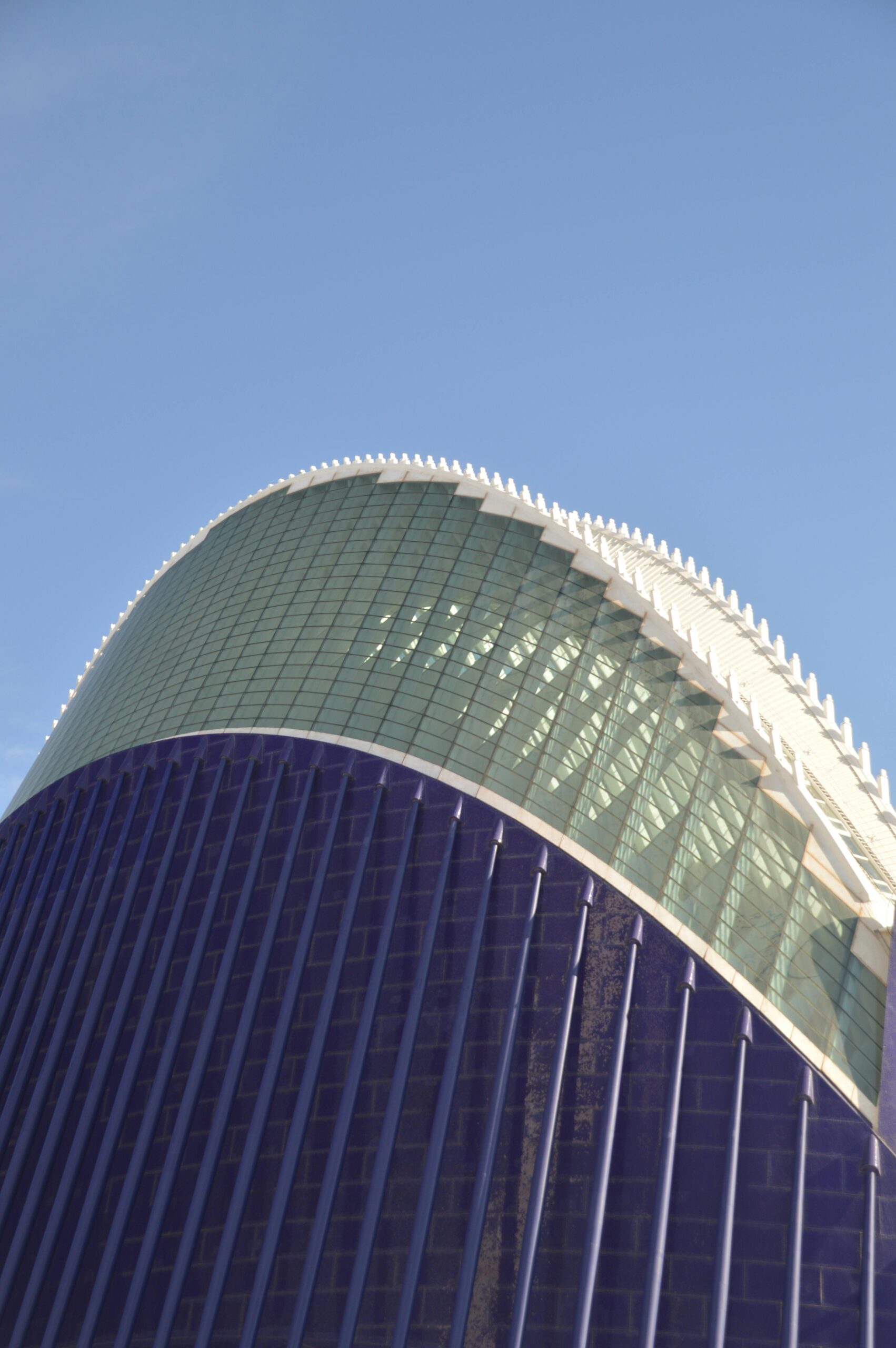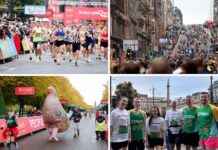Are you ready to take on the Glasgow Marathon? This exhilarating race, known for its stunning course and vibrant atmosphere, offers runners of all abilities the chance to push their limits. In this article, we’re going to uncover the secrets to conquer your next race and ensure you cross that finish line with pride. Whether you’re a seasoned marathoner or a first-time participant, you’ll find valuable tips and insights that can make all the difference in your training and race day experience.
The Glasgow Marathon is not just about the miles; it’s about embracing the spirit of the city and connecting with fellow runners. With a course that winds through iconic landmarks and lush green spaces, you’ll find motivation around every corner. But how do you prepare effectively? From choosing the right gear to mastering nutrition, we’ll delve into tactics that have helped countless athletes achieve their personal bests. Have you thought about your race strategy? Understanding pacing and mental preparation can be the game changers that elevate your performance.
Additionally, we’ll explore the best training plans tailored for the Glasgow terrain, so you can tackle the unique challenges it presents. Are you curious about the best local spots for post-race recovery? We have you covered! Join us as we share insider tips, expert advice, and the most effective training methods to ensure you’re ready to conquer the Glasgow Marathon. Don’t miss out on the chance to transform your race experience and achieve your goals—read on to discover how you can elevate your marathon journey!
Unleash Your Potential: Top 7 Training Tips to Prepare for the Glasgow Marathon
The Glasgow Marathon is more than just a race; it’s a journey that thousands of runners embark on each year. Whether you’re a seasoned marathoner or a first-time participant, the anticipation of crossing that finish line can be exhilarating yet daunting. Unleash your potential by following these top 7 training tips to prepare for the Glasgow Marathon. With these strategies, you can not only improve your performance but also enjoy the process of training.
1. Start with a Solid Training Plan
Creating a training plan is crucial, but many runners neglect this aspect. A well-structured plan includes long runs, speed work, and recovery days. Generally, a 16-week training schedule is recommended for marathon preparation. This helps build endurance gradually while reducing the risk of injuries.
Sample Weekly Structure:
- Monday: Rest or cross-training
- Tuesday: Short run (5-8 km)
- Wednesday: Speed workout (intervals or tempo runs)
- Thursday: Medium-long run (10-15 km)
- Friday: Rest or light jog
- Saturday: Long run (16-30 km)
- Sunday: Recovery run (easy pace)
2. Fuel Your Body Wisely
Nutrition plays a significant role in training for the Glasgow Marathon. You can’t just run without considering what you eat. A balanced diet rich in carbohydrates, proteins, and fats is essential. Carbs are your friend, especially during the tapering phase leading up to the marathon.
Key Nutritional Tips:
- Hydrate properly before, during, and after runs.
- Incorporate whole grains, fruits, and vegetables for energy.
- Don’t forget protein for muscle recovery, think lean meats, legumes, and dairy.
- Experiment with gels and energy bars during training to see what works best for you.
3. Listen to Your Body
It’s easy to push through pain, but that can lead to serious injuries. Knowing when to stop is vital for your training success. If you feel unusual pain or discomfort, take a break. It’s better to miss a few days of training than to deal with a long-term injury.
4. Join a Running Group
Running with others can be motivating. Many runners find that joining a local running club or group helps them stay committed. You can share tips, experiences, and even some laughs along the way. Plus, having a support system makes the miles fly by.
Benefits of Running Groups:
- Accountability to show up for training sessions.
- Shared knowledge from experienced runners.
- Opportunities for socialising and making friends.
5. Focus on Mental Preparation
Marathon running is as much mental as it is physical. You can train your mind just like your body. Visualization techniques can help you imagine crossing the finish line. Practising mindfulness and positive affirmations can also boost your confidence.
Mental Training Techniques:
- Visualisation: Picture yourself completing the race.
- Positive affirmations: Remind yourself of your hard work.
- Mindfulness: Stay present and focused during runs.
6. Incorporate Cross-Training
Relying solely on running can lead to burnout and overuse injuries. Cross-training helps build strength and flexibility, which are essential for a marathon. Activities like cycling, swimming, or strength training can offer a break from running while still keeping you fit.
Popular Cross-Training Activities:
- Cycling: Great for building leg strength without the impact.
- Swimming: Offers full-body workout and aids recovery.
- Yoga: Enhances flexibility and mental focus.
7. Taper Before Race Day
Tapering is the process of reducing your training volume to allow your body to recover before the race. This phase is important, yet many runners find it challenging to cut back. It’s common to feel anxious during this time, but remember that your body needs rest to perform at its best.
Tapering Tips:
- Reduce mileage gradually over the last two weeks.
- Maintain intensity but limit the duration of runs.
- Focus on hydration and nutrition to prepare for race day.
The Glasgow Marathon is a fantastic opportunity to challenge yourself and achieve something incredible. With these training tips, you can approach the race with confidence. Remember that every runner’s journey is unique; what works for one may not work for another. Embrace the process, adapt as needed, and most importantly, enjoy the experience of training and racing in the vibrant city of Glasgow.
Insider Secrets: What Every First-Time Glasgow Marathon Runner Must Know
Glasgow Marathon is one of the most anticipated events in the UK running calendar. For first-time runners, it can feel like an overwhelming experience. But don’t fret, we got some insider secrets that can help you conquer your next race and enjoy the journey. Whether you are a seasoned runner or just starting out, understanding the nuances of this marathon can make all the difference.
The History of Glasgow Marathon
The Glasgow Marathon, which first took place in 1982, have evolved significantly over the decades. Initially, it was a small event with only a few hundred participants. Now, it attracts thousands of runners from all over the globe. The route winds through the city’s stunning landscapes, showcasing iconic sites like the Clyde River and the impressive architecture of Glasgow. This marathon is not just about running; it’s about experiencing the vibrant culture of Glasgow.
Training Tips for First-Time Runners
Training for a marathon is no small feat, and first-timers often make common mistakes. Here’s some essential tips to help you prepare:
- Start Slow: It’s easy to get caught up in the excitement and push yourself too hard. Begin with shorter runs and gradually increase your distance.
- Create a Training Schedule: Plan your workouts and stick to a routine. Most first-time marathoners benefit from a 16 to 20-week training plan.
- Cross-Training: Incorporating cycling, swimming, or strength training can improve your overall fitness and reduce the risk of injury.
- Listen to Your Body: Rest days are crucial. If you feel pain, take a break. Overtraining can lead to injuries that ruin your marathon experience.
Key Race Day Secrets
Race day is a whole different ball game, and knowing what to expect can help ease nerves:
- Arrive Early: Glasgow Marathon can get busy. Make sure to arrive at least two hours before the race starts. This gives you ample time to warm up and find your starting pen.
- Stay Hydrated: Drink water but don’t overdo it. Too much water can lead to discomfort while running.
- Fuel Wisely: Know what works for your stomach. Experiment with gels, bars, or bananas during long training runs to see what you can handle.
- Dress Smart: Glasgow weather can be unpredictable. Check the forecast and dress in layers. It’s better to be slightly cold at the start than too hot later on.
Understanding the Route
The Glasgow Marathon route is designed to showcase the best of the city. Here are some key highlights:
- Start/Finish at George Square: This central location makes it easy for friends and family to cheer you on.
- Clyde Walkway: A scenic part of the route, running alongside the river with beautiful views.
- City Centre: Runners pass through bustling areas, providing a vibrant atmosphere.
- The Finish Line: Crossing the finish line at George Square is an incredible feeling, surrounded by supporters.
What to Pack for the Marathon
Packing for the marathon can be as crucial as training itself. Here’s a quick checklist for you:
- Running shoes (worn-in, not new)
- Comfortable running attire (consider the weather)
- Energy gels or snacks
- Water bottle
- Sunscreen (even if it’s cloudy)
- A small backpack or running belt for personal items
Support Along the Way
The Glasgow Marathon is known for its enthusiastic crowds. Make sure to take advantage of the support available:
- Cheering Zones: Friends and family can set up in designated cheering zones. Knowing where they are can give you a mental boost.
- Medical Stations: There are plenty of medical stations along the route if you need assistance.
- Refreshment Points: Hydration stations are spaced throughout the marathon. Make sure to grab some water or sports drinks to keep your energy up.
While tackling your first Glasgow Marathon may seem daunting, with the right preparation and insider knowledge, you can turn this challenge into an unforgettable adventure. Embrace the journey, enjoy the sights and sounds of Glasgow, and most importantly, have fun. Remember, every step you take brings you closer to crossing that finish line. You’re not just running a marathon; you’re creating memories that will last a lifetime.
Race Day Essentials: 10 Must-Have Items for a Successful Glasgow Marathon Experience
The Glasgow Marathon, one of the UK’s most beloved running events, attracts thousands of runners, both seasoned and newbies, every year. If you’re gearing up for this exhilarating race, there are a few key items that can make or break your experience. Whether it’s your first time or your fifteenth, being prepared is essential. Here’s a rundown of Race Day Essentials: 10 Must-Have Items for a Successful Glasgow Marathon Experience.
1. Comfortable Running Shoes
Choosing the right pair of shoes is crucial. You should have a well-fitted pair that’s broken in. Running in new shoes can cause blisters, which is not ideal when you’re trying to conquer 26.2 miles. Look for shoes with good cushioning and support, and don’t forget to wear the socks you plan on racing with.
2. Weather-Appropriate Clothing
Glasgow’s weather can be unpredictable. It could be sunny one moment and pouring rain the next. Layers are your friend. Consider wearing moisture-wicking fabrics and a lightweight jacket if rain is in the forecast. If it’s chilly, arm sleeves and gloves might be necessary.
3. Hydration Gear
Staying hydrated is vital. You can’t rely solely on water stations along the route. A running belt or a handheld water bottle can help. Some runners prefer a hydration pack, especially if they’re training for longer distances.
4. Nutrition and Energy Gels
Energy gels, chews, or bars can provide the necessary fuel for your body during the race. It’s essential to try these products during training runs first to see what works best for you. Pack them in your pockets or your running belt for easy access.
5. Race Number and Safety Pins
Don’t forget your race number, which you’ll need to pin to your shirt. Safety pins are often provided, but it’s always a good idea to bring your own, just in case. Make sure it’s visible throughout the race.
6. A Music Device or Headphones
If you plan on listening to music or podcasts while running, make sure your device is charged and your headphones are comfortable. However, keep in mind that some races may have rules regarding headphones, so check the Glasgow Marathon’s policies before race day.
7. A Personal Identification
You should carry some form of identification, in case of emergencies. A simple ID card or a copy of it can be kept in your pocket or in your running belt. It’s better to be safe than sorry, right?
8. A Warm-Up Routine
While not a physical item, a proper warm-up is crucial. Spend at least 15-20 minutes stretching and doing dynamic exercises. This helps prevent injuries and gets your body ready for the race.
9. A Support Crew
Having friends or family cheering you on can be incredibly motivating. Plan where they’ll be located along the route. It can make a huge difference in your morale when you see familiar faces during tough stretches.
10. Post-Race Recovery Supplies
Once you cross the finish line, you’ll need to recover. Packing a change of clothes, snacks, and a water bottle can help. Some runners also bring foam rollers or massage balls for immediate muscle relief.
Additional Tips for Your Glasgow Marathon Experience
- Know the Route: Familiarise yourself with the marathon course. Knowing when the hills are coming can help you prepare mentally and physically.
- Plan Your Travel: Arrive early to avoid any last-minute stress. Check the public transport options or parking facilities.
- Be Mindful of Timing: Get to the starting line with plenty of time to spare. Rushing can lead to unnecessary anxiety.
- Stay Positive: Remember, running a marathon is as much a mental challenge as it is physical. Keep a positive mindset from start to finish.
The Glasgow Marathon is not just a race; it’s a celebration of endurance, community, and personal achievement. By preparing with these essentials and tips, you can make your marathon experience not just successful, but also enjoyable. So lace up your shoes, get ready to hit the streets of Glasgow, and embrace the thrill of race day!
Master the Course: Strategies to Tackle the Unique Challenges of the Glasgow Marathon
Running a marathon is always a huge challenge, and the Glasgow Marathon is no exception. This event, held annually in one of Scotland’s most vibrant cities, attracts runners from all over the world. The course has its unique twists and turns, literally and figuratively, making it essential for participants to be well-prepared. If you want to master the course, you’ll need some strategies to tackle the unique challenges that come with it. So, let’s dive into the secrets that could help you conquer your next race!
Understanding the Glasgow Marathon Course
The Glasgow Marathon route is known for its scenic views but also its ups and downs. The course is approximately 26.2 miles long, winding through various parts of the city. Here’s what to know:
- Start Line: The race begins at George Square, a central location in Glasgow.
- Key Landmarks: Runners pass iconic sights like the River Clyde, the Glasgow Green, and the stunning architecture of the city.
- Elevation Changes: The course has some hills that might catch you off guard, especially in the later miles when fatigue sets in.
Training for the Unique Challenges
To master the Glasgow Marathon, it’s crucial to train effectively. Here are some strategies:
Hill Training: Incorporate hill runs into your training schedule. Find local hills or use treadmills to simulate the uphills you will encounter on race day.
Long Runs: These are essential for building endurance. Aim to run at least one long run per week, gradually increasing your distance.
Pace Strategy: Practice pacing yourself. The excitement of the start might cause you to run faster than intended, leading to exhaustion later on.
Nutrition and Hydration: Experiment with gels, bars, or whatever you plan to use on race day. It’s important to find what works for you during training runs.
Rest and Recovery: Don’t underestimate the power of rest days. They are crucial for muscle recovery and overall performance.
Race Day Tips
When race day arrives, being prepared can make a big difference. Here’s a list of tips to consider:
- Arrive Early: Get to the start line early to avoid last-minute stress.
- Wear Appropriate Gear: Check the weather forecast and dress accordingly. Layers can be useful if the weather is unpredictable.
- Know the Water Stations: Familiarise yourself with where the water stations are located. This can help you plan when to hydrate.
- Stick to Your Plan: Whether that’s a pacing strategy or a nutrition schedule, try not to deviate from what you’ve practiced.
Common Challenges to Anticipate
Every marathon has its hurdles, and the Glasgow Marathon is no different. Here’s a look at some common challenges you might face:
- Crowds: The event draws a large number of runners and spectators. It can feel congested, especially in the early miles.
- Weather: Glasgow’s weather can be unpredictable. Be ready for rain, wind, or even heat.
- Mental Fatigue: As you approach the later stages of the race, mental toughness becomes just as important as physical stamina.
Local Insights: What Runners Say
Runners who’ve tackled the Glasgow Marathon often share their experiences, helping newcomers prepare. Here are some common pieces of advice:
- “Don’t let the excitement push you to go too fast at the start. Save your energy for the latter half.”
- “The support from the locals is incredible. Use it to lift your spirits when you’re feeling tired.”
- “Train on the course if you can. Familiarity can ease anxiety on race day.”
Final Thoughts
Mastering the Glasgow Marathon requires not only physical preparation but also mental fortitude and strategic planning. Embrace the quirks and challenges that the course presents. With the right training, mindset, and knowledge, you’ll be well-equipped to tackle this marathon with confidence. Whether you’re a seasoned marathoner or a first-timer, the Glasgow Marathon offers a unique experience that is well worth the effort. Prepare well, keep your spirits high, and enjoy the journey. Good luck, and see you at the finish line!
Fuel Your Performance: The Best Nutrition Plans for Training and Race Day at the Glasgow Marathon
The Glasgow Marathon is not just a race; it’s an experience that runners from all over come to embrace. Whether you’re a seasoned marathoner or a first-time participant, knowing the right nutrition plans could be the key to enhancing your performance. Fueling your body correctly can help you conquer those long miles, particularly on race day. So let’s dive into the best nutrition strategies that can help you on your journey to the finish line at the Glasgow Marathon.
Understanding Nutritional Needs for Runners
Runners need to be aware of what their body requires to perform at its best. The type and amount of nutrition varies depending on individual factors like weight, training intensity, and personal goals. Generally, a balanced diet containing carbohydrates, proteins, and fats is essential.
- Carbohydrates are the primary fuel source for endurance activities and should make up about 60% of your diet.
- Proteins are vital for muscle repair and recovery, and they should account for around 15-20% of your intake.
- Fats, which provide long-lasting energy, should make up the remaining 20-30%.
In the weeks leading up to the Glasgow Marathon, adjusting your diet to meet these needs is crucial.
Pre-Race Nutrition: What to Eat
The days leading up to the race are critical for loading up on carbohydrates. Here’s a quick list of what you should consider adding to your meals:
- Whole grain pasta
- Brown rice
- Quinoa
- Sweet potatoes
- Bananas
These foods are not only rich in carbohydrates but also provide essential nutrients that aid in recovery.
On the night before the marathon, a meal rich in carbs and low in fats is recommended. Something like a bowl of pasta with a light tomato sauce can be a perfect choice.
Race Day Fueling Strategies
On race day, what you eat can make a big difference. Many runners prefer a light breakfast about two to three hours before the race starts. Some popular options include:
- Oatmeal topped with honey and fruit
- A bagel with peanut butter
- Energy bars that are easy to digest
Hydration is equally important, so don’t forget to drink plenty of water. A good rule of thumb is to drink around 500ml of water in the hours leading up to the race.
During the Race: Keeping Your Energy Up
During the Glasgow Marathon, you might find yourself needing a boost. That’s where energy gels, chews, or even bananas at water stations come into play. Here’s a quick reference on how to sustain your energy levels during the race:
- Consume 30-60 grams of carbohydrates per hour.
- Take sips of water at every water station, but don’t overdo it to avoid stomach cramps.
- If you’re used to them, energy gels can be a great option for quick energy.
Post-Race Recovery Nutrition
Once you cross that finish line, your body will be craving nutrients. It’s important to replenish what you’ve lost. Focus on a recovery meal that includes:
- Protein for muscle repair (e.g., chicken, fish, legumes)
- Carbs to restore glycogen levels (e.g., rice, potatoes)
- Fluids to rehydrate (water, electrolyte drinks)
A smoothie with protein powder, fruits, and leafy greens can also be a great way to recover.
Common Nutrition Mistakes to Avoid
As runners prepare for the Glasgow Marathon, they often make some common mistakes. Here’s a quick rundown of what to avoid:
- Skipping meals the night before the race: This can leave you feeling sluggish.
- Trying new foods on race day: Stick to what you know works for your body.
- Forgetting to hydrate: Dehydration can severely impact performance.
The Benefits of Personalised Nutrition Plans
Every runner is unique. Some might thrive on vegetarian diets, while others require the extra protein that comes from meat. Consulting with a sports nutritionist can help tailor a plan specifically for you. They can assist you in identifying your dietary preferences, allergies, and specific performance goals.
If you’re preparing for the Glasgow Marathon, don’t leave your nutrition to chance. A well-structured plan can be the difference between finishing strong or struggling to cross the line.
Remember, the Glasgow Marathon is not just about running; it’s about how well you fuel your body for the challenge ahead. So, embrace the experience and remember to enjoy the journey to the finish line!
Conclusion
In conclusion, the Glasgow Marathon stands as a vibrant testament to the city’s rich culture and sporting spirit. With its scenic route that showcases iconic landmarks and a supportive local community, this event not only attracts seasoned runners but also welcomes participants of all abilities, making it an inclusive celebration of endurance and determination. The marathon’s emphasis on charity fundraising further highlights its role in fostering community spirit and social responsibility. As we reflect on the inspiring stories and personal achievements that emerge each year, it’s clear that the Glasgow Marathon is more than just a race; it’s an experience that brings people together. If you’re considering taking on the challenge, whether as a runner or a supporter, don’t hesitate to join in the excitement and be part of this extraordinary event. Mark your calendars and prepare to make memories that will last a lifetime in the heart of Glasgow!


















